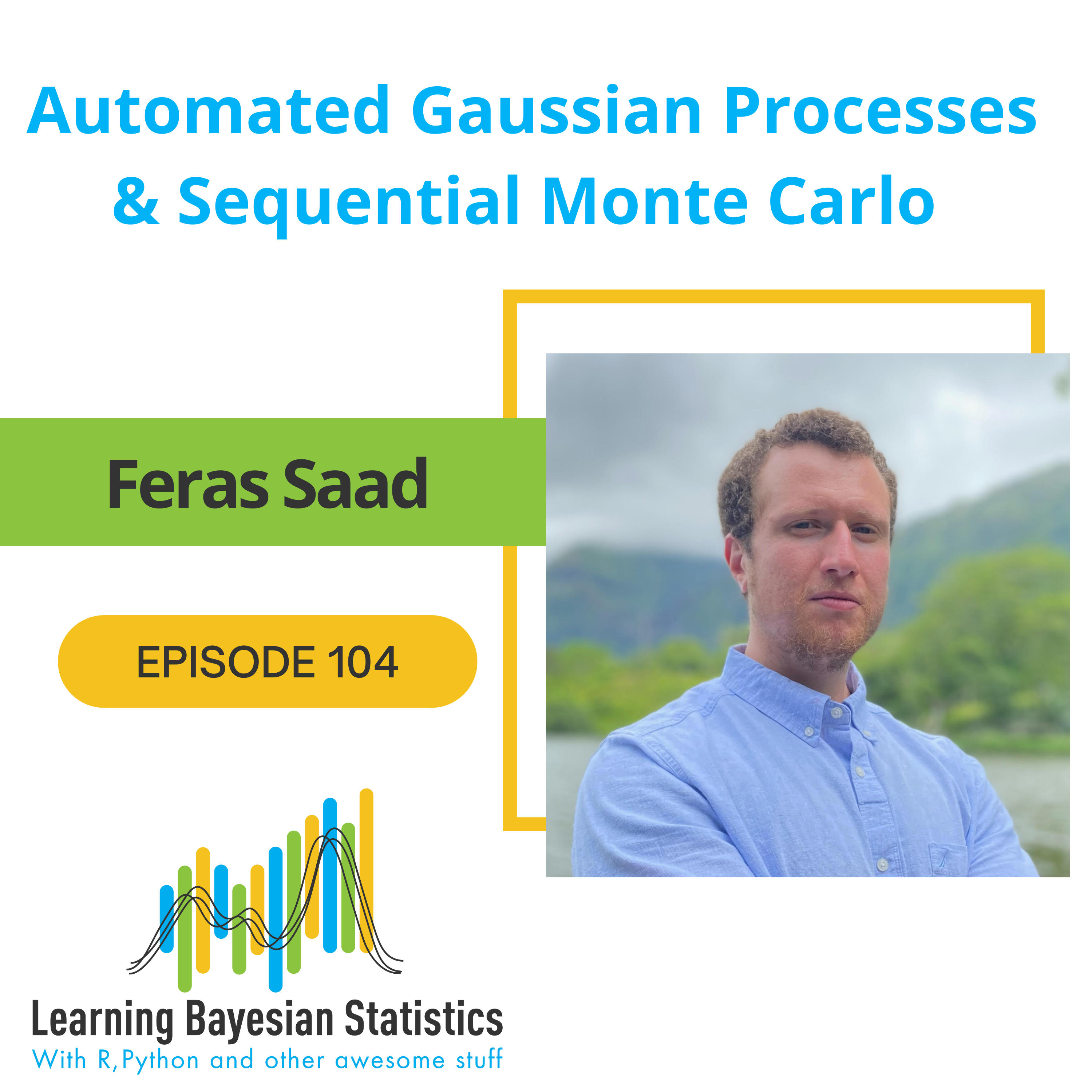#105 The Power of Bayesian Statistics in Glaciology, with Andy Aschwanden & Doug Brinkerhoff
Description
Proudly sponsored by PyMC Labs, the Bayesian Consultancy. Book a call, or get in touch!
In this episode, Andy Aschwanden and Doug Brinkerhoff tell us about their work in glaciology and the application of Bayesian statistics in studying glaciers. They discuss the use of computer models and data analysis in understanding glacier behavior and predicting sea level rise, and a lot of other fascinating topics.
Andy grew up in the Swiss Alps, and studied Earth Sciences, with a focus on atmospheric and climate science and glaciology. After his PhD, Andy moved to Fairbanks, Alaska, and became involved with the Parallel Ice Sheet Model, the first open-source and openly-developed ice sheet model.
His first PhD student was no other than… Doug Brinkerhoff! Doug did an MS in computer science at the University of Montana, focusing on numerical methods for ice sheet modeling, and then moved to Fairbanks to complete his PhD. While in Fairbanks, he became an ardent Bayesian after “seeing that uncertainty needs to be embraced rather than ignored”. Doug has since moved back to Montana, becoming faculty in the University of Montana’s computer science department.
Our theme music is « Good Bayesian », by Baba Brinkman (feat MC Lars and Mega Ran). Check out his awesome work at https://bababrinkman.com/ !
Thank you to my Patrons for making this episode possible!
Yusuke Saito, Avi Bryant, Ero Carrera, Giuliano Cruz, Tim Gasser, James Wade, Tradd Salvo, William Benton, James Ahloy, Robin Taylor,, Chad Scherrer, Zwelithini Tunyiswa, Bertrand Wilden, James Thompson, Stephen Oates, Gian Luca Di Tanna, Jack Wells, Matthew Maldonado, Ian Costley, Ally Salim, Larry Gill, Ian Moran, Paul Oreto, Colin Caprani, Colin Carroll, Nathaniel Burbank, Michael Osthege, Rémi Louf, Clive Edelsten, Henri Wallen, Hugo Botha, Vinh Nguyen, Marcin Elantkowski, Adam C. Smith, Will Kurt, Andrew Moskowitz, Hector Munoz, Marco Gorelli, Simon Kessell, Bradley Rode, Patrick Kelley, Rick Anderson, Casper de Bruin, Philippe Labonde, Michael Hankin, Cameron Smith, Tomáš Frýda, Ryan Wesslen, Andreas Netti, Riley King, Yoshiyuki Hamajima, Sven De Maeyer, Michael DeCrescenzo, Fergal M, Mason Yahr, Naoya Kanai, Steven Rowland, Aubrey Clayton, Jeannine Sue, Omri Har Shemesh, Scott Anthony Robson, Robert Yolken, Or Duek, Pavel Dusek, Paul Cox, Andreas Kröpelin, Raphaël R, Nicolas Rode, Gabriel Stechschulte, Arkady, Kurt TeKolste, Gergely Juhasz, Marcus Nölke, Maggi Mackintosh, Grant Pezzolesi, Avram Aelony, Joshua Meehl, Javier Sabio, Kristian Higgins, Alex Jones, Gregorio Aguilar, Matt Rosinski, Bart Trudeau, Luis Fonseca, Dante Gates, Matt Niccolls, Maksim Kuznecov, Michael Thomas, Luke Gorrie, Cory Kiser, Julio, Edvin Saveljev, Frederick Ayala, Jeffrey Powell, Gal Kampel, Adan Romero and Will Geary.
Visit https://www.patreon.com/learnbayesstats to unlock exclusive Bayesian swag ;)
Takeaways:
- Computer models and data analysis play a crucial role in understanding glacier behavior and predicting sea level rise.
- Reliable data, especially on ice thickness and climate forcing, are essential for accurate modeling.
- The collaboration between glaciology and Bayesian statistics has led to breakthroughs in understanding glacier evolution forecasts.
-There is a need for open-source packages and tools to make glaciological models more accessible. Glaciology and ice sheet modeling are complex fields that require collaboration between domain experts and data scientists.
- The use of Bayesian statistics in glaciology allows for a probabilistic framework to understand and communicate uncertainty in predictions.
- Real-time forecasting of glacier behavior is an exciting area of research that could provide valuable information for communities living near glaciers.
-There is a need for further research in understanding existing data sets and developing simpler methods to analyze them.
- The future of glaciology research lies in studying Alaskan glaciers and understanding the challenges posed by the changing Arctic environment.
Chapters:
00:00 Introduction and Background
08:54 The Role of Statistics in Glaciology
31:46 Open-Source Packages and Tools
52:06 The Power of Bayesian Statistics in Glaciology
01:06:34 Understanding Existing Data Sets and Developing Simpler Methods
Links from the show:
- Andy’s website: https://glaciers.gi.alaska.edu/people/aschwanden
- Doug’s website: https://dbrinkerhoff.org/
- Andy on GitHub: https://github.com/aaschwanden
- Doug on GitHub: https://github.com/douglas-brinkerhoff/
- Andy on Twitter: https://twitter.com/glacierandy?lang=fr
- Andy on Google Scholar: https://scholar.google.com/citations?user=CuvsLvMAAAAJ&hl=en
- Doug on Google Scholar: https://scholar.google.com/citations?user=FqU6ON8AAAAJ&hl=en
- LBS #64, Modeling the Climate & Gravity Waves, with Laura Mansfield: https://learnbayesstats.com/episode/64-modeling-climate-gravity-waves-laura-mansfield/
- Parallel Ice Sheet Model: www.pism.io
- PISM on GitHub: https://github.com/pism/pism
- Greenland View of Three Simulated Greenland Ice Sheet Response Scenarios: https://svs.gsfc.nasa.gov/4727/
Transcript
This is an automatic transcript and may therefore contain errors. Please get in touch if you're willing to correct them.
























